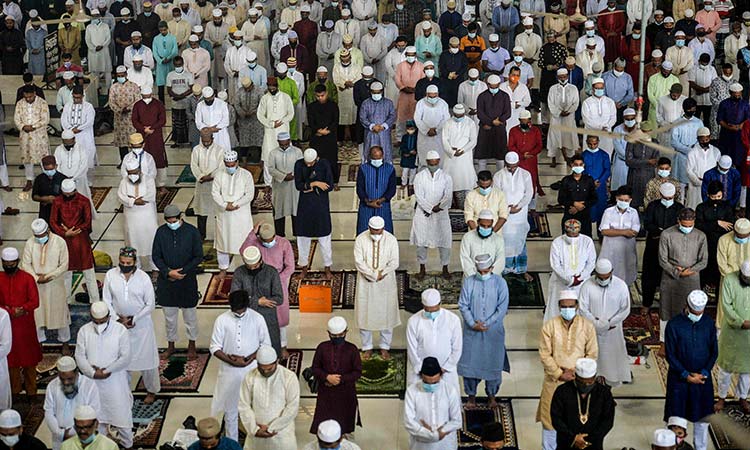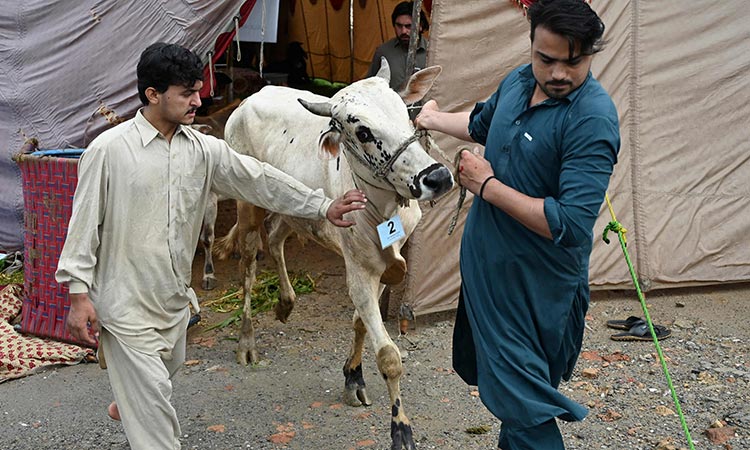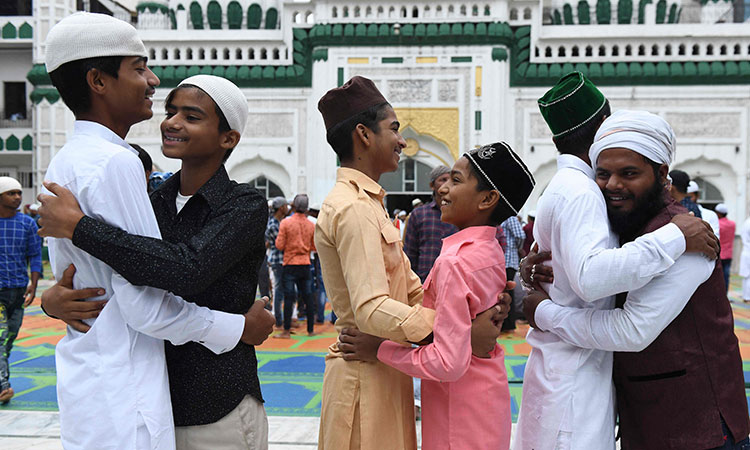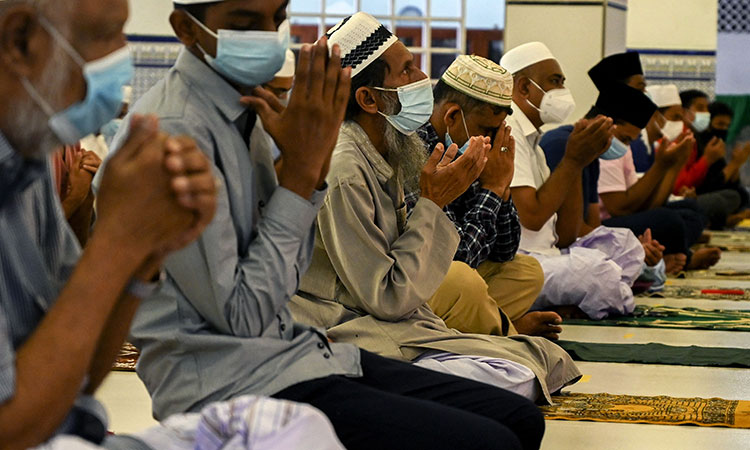
Communal prayers typically mark Eid Al Adha, which also sees large social gatherings, slaughtering of livestock and distributing meat among the needy. Muslims are observing Eid on Wednesday in India, Pakistan, Bangladesh, Sri Lanka and other parts of the world.
The celebrations are being held under strict precautionary measures amidst the ongoing coronavirus pandemic.
Eid celebrations in these countries, which will last till Friday, come at a time when a steady rise in COVID-19 cases has been witnessed and the threat of the Delta variant looms high.

Heavy rain played spoilsport on Tuesday as people in Kashmir remained busy thronging bakery, mutton, poultry and sacrificial animal markets ahead of Eid Al Adhaa.
Animal markets have come up at the Eidgah grounds in Srinagar city and other places in the old city areas while sale and purchase of these animals continued on Tuesday in all major towns of the Valley.
Once drawing some 2.5 million Muslims from across the globe to the holy city of Makkah in Saudi Arabia, the pilgrimage has been dramatically scaled back due to the virus and because of the pandemic, it already taken a toll for the second year on a sacred mainstay of Islam, the Hajj, whose last days coincide with Eid Al Adha the “Feast of Sacrifice.”

This year’s Hajj has been limited to 60,000 vaccinated Saudi citizens or residents of Saudi Arabia. On Tuesday, pilgrims wearing masks and maintaining social distancing performed the symbolic stoning of the devil in the valley area of Mina – using sterilised pebbles they received ahead of time.
“This is (a) very, very, very big moment for us, for me especially,” said pilgrim Arya Widyawan Yanto, an Indonesian living in Saudi Arabia. He added that he was happy he had the chance to perform the pilgrimage. “Everything was conducted under very strict precautions.”
This year, the holiday comes as many countries battle the delta variant first identified in India, prompting some to impose new restrictions or appeal for people to avoid congregating and follow safety protocols.

In Malaysia, measures have been tightened after a sharp spike in infections, despite a national lockdown since June 1. People are banned from travelling back to their hometowns or crossing districts to celebrate. House visits and customary trips to graveyards are also banned.
Healthy worshippers are allowed to gather for prayers in mosques, with strict social distancing and no physical contact. Ritual animal sacrifice is limited to mosques and other approved areas.












